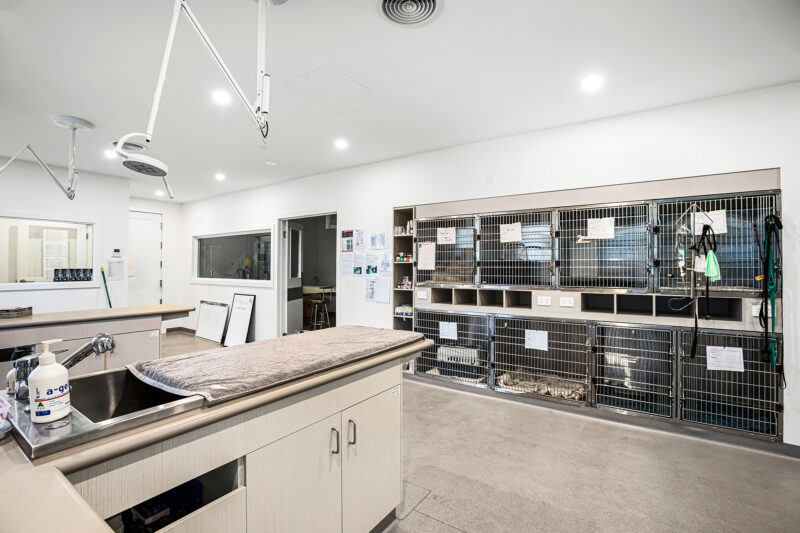Hospitalisation
Reasons my pet would require hospitalisation
Pet hospitalization typically occurs when a pet needs more intensive care than can be provided at home or during a regular veterinary visit. Reasons for hospitalization include surgeries, severe illnesses, injuries, or the need for prolonged monitoring, such as post-operative care, IV fluids, or specialized treatments.

Key aspects of pet hospitalization
- Initial assessment: A vet will evaluate the pet’s condition to determine if hospitalization is necessary. This might involve diagnostic tests like X-rays, blood work, or ultrasounds.
- Treatment plan: Once admitted, a treatment plan is developed. This could involve medications, intravenous (IV) fluids, pain management, or surgery, depending on the pet’s condition.
- Monitoring: Hospitalized pets are closely monitored, sometimes around the clock. Veterinary staff check vital signs, response to treatment, and comfort levels.
- Visiting hours: Many veterinary hospitals allow pet owners to visit during certain hours, which can help both the pet and the owner cope with stress.
- Costs: The cost of hospitalization can vary significantly based on the type of care, length of stay, and treatments required.
- Discharge: When the pet is stable, it will be discharged with instructions for at-home care. Follow-up visits are often required to monitor recovery.
- Specialized facilities: Some hospitals offer advanced services like oncology, critical care, or rehabilitation for pets that require specialized care.
Our hospitilisation area
At Brighton Veterinary Hospital we have a dedicated area for pets that need hospitalisation. The area includes:
- Separate cat ward
- Dog cages
- Large dog runs
